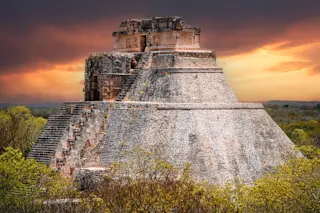Via the International Institute for Strategic Studies, this is a pretty interesting take on the recent Bin Laden/climate change episode:
Late last week, Osama Bin Laden came out with a new audiotape accusing the US for causing climate change. He says: "Speaking about climate change is not a matter of intellectual luxury - the phenomenon is an actual fact." The following statement could as easily have been spoken by Hugo Chavez, Fidel Castro, or other anti-capatalists:
One of the themes that ran through the Copenhagen Conference was the global divide between rich and poor, north and south. As many studies have borne out, climate change will do greater harm to the poorest countries. Because these countries also have the least responsibility for historical emissions, they feel they yet again being harmed by forces beyond their control. This theme links climate change to a series of other grievances that the poor world holds against the rich, like agricultural protectionism, globalization, colonialism, and others.
What goes unmentioned in this post is how these grievances are likely to be magnified if future climate negotiations circumvent the UN, which is what may end up happening post Copenhagen. (Of course, developing countries such as China and India would be among the exclusive players, because they are among the world's major emitters, but somehow I don't think that'll keep the world's "poorest countries" from feeling dissed and doubly aggrieved.) Regardless, for those of us who had trouble fathoming the purpose of Bin Laden's opining on climate change, perhaps he was test driving a future AQ talking point against the West. This is what I think can be inferred from the last part of that International Institute for Strategic Studies post:
For the last several years, when analysts have discussed the security threats of climate change, we've talked about it "as an accelerant of instability or conflict" or as a new competition over scarce energy, water, or food resources. Perhaps we should now begin to look at it as a new area of grievance between the rich and the poor. If droughts in Sudan are blamed on global warming, and Sudanese blame the US for the emissions that caused global warming, then a logical next step would be for the Sudanese to engage in action that would cause the US to stop emitting. Potential actions could include taking oil company workers hostage or even direct acts of terrorism. A good way to defuse this animosity would be for the rich world to fully engage in a global climate treaty that is seen as fair, equitable, and just around the world.
Something to keep in mind if global climate talks get taken out of the UN framework.













